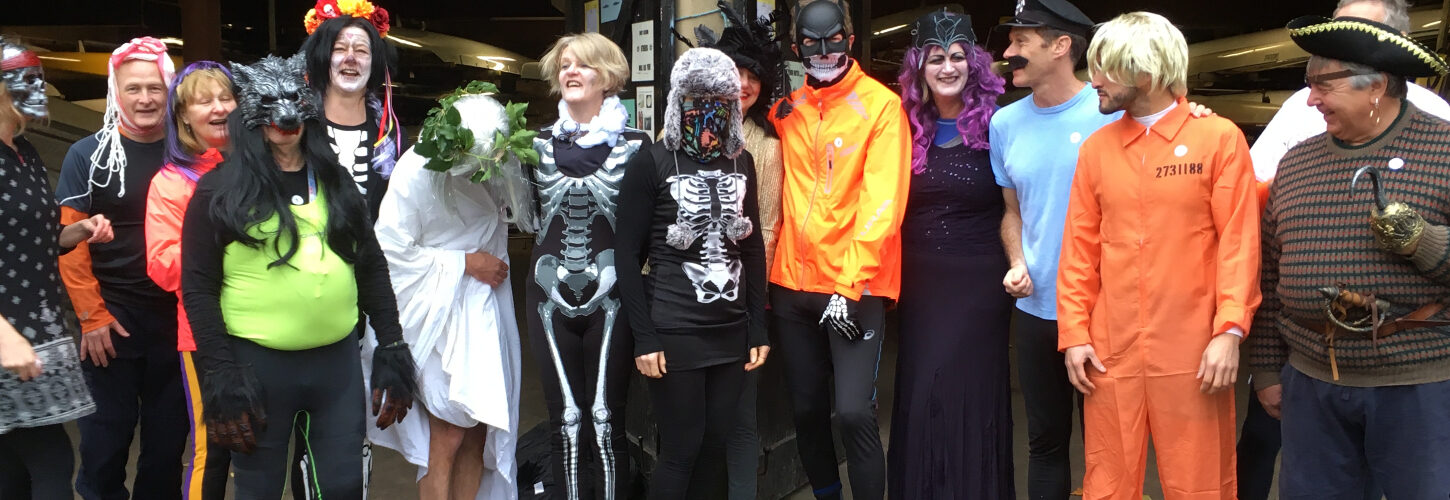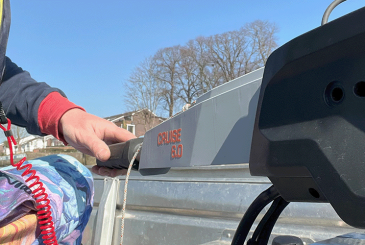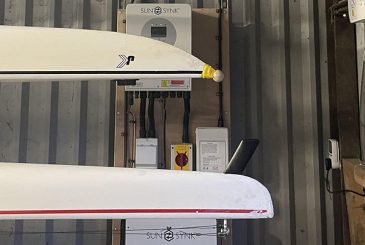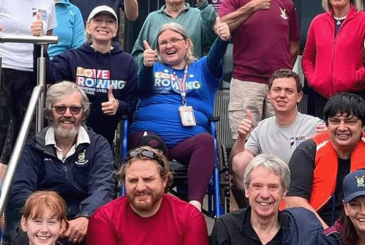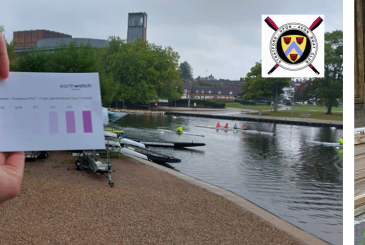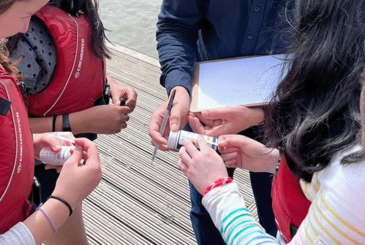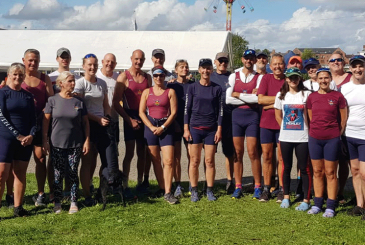Most club, school and university rowing in the UK is focused on racing – but there’s another way! Helena Smalman-Smith explains more, and talks to two clubs with thriving recreational rowing groups
Have you been for a cycle or maybe a run recently? And if so, why?
I’m guessing it would just have been because you wanted to take some exercise and/or simply because you enjoyed it. Exercise for fun and on your own terms is hugely popular, if the steady stream of cyclists and runners of all ages, shapes, sizes and speeds passing my house is anything to go by, never mind the swarms of independent kayakers and paddleboarders on the river every summer.
So, offering a ‘your workout, your choice’ option at your club will almost certainly appeal to a whole lot of people in your local community for whom hard-training squad rowing has little appeal or simply doesn’t fit with family or work commitments.
What is recreational rowing?
Like it says on the tin, it’s rowing for enjoyment. A crucial difference from ‘squad’ rowing is that you don’t have to turn up for any given session. This does require a flexible attitude, but as Michele Fisher, Bedford RC’s ‘rec’ group co-ordinator explains: “Generally we don’t know in advance what we’re going to be doing because we don’t have set crews, but it always sorts itself out. They’re all such lovely people they just move into a scull, volunteer to cox or even end up on an ergo or go for a walk if it’s too windy to single.”

Without the pressure that racing crews have to mould into a competitive unit, who’s in the boat really isn’t an issue.
There’s no training programme either (unless you want one, say, to work towards taking part in a particular event) so lung-busting, leg-burning pieces are optional. That said, many members of recreational groups do target both local and national (mainly masters) events.
“I never thought leisure rowers could be so competitive and successful!” says John Sparrow, founder of the York City Leisure & Progression Group.
“A rec group will help you expand your membership. Considerably”
Recreational rowers can be of any standard and any age. Admittedly, many groups have an older demographic, but that’s largely only because they often meet during the working day, which means they mostly attract retirees, in addition to shift workers, freelancers and others not working full time. It can be done in any type of boat, although ‘stable’ or ‘Explore’ boats are popular with many recreational groups, particularly coxed quads so no one has the hassle of bow-steering yet the coxing seat is spacious enough for almost anyone to fit in. Their easily adjustable ergo-feet and hull also accommodate mixed crews well.
Here, Graham Hall of Christchurch RC describes why the club set up a social rowing group and what they like doing:
How to set up recreational rowing within a racing club
A typical arrangement is for rec group sessions to take place two or three mornings a week, increasing usage of the club’s existing fleet. Generally, this doesn’t include the very top racing boats; Bedford RC makes this clear by categorising who can use which equipment by competence rather than squad.
“For those sharing boats with racing squads, one option is to run weekend afternoon sessions”
Crucially, having coffee (or cocoa in Bedford’s case) afterwards, is at least as important as the rowing.
But what about nine-to-five workers? This can be tricky; after all, landing stage space is limited and there are usually only so many boats that will fit in the boathouse. For those sharing boats with racing squads, one option is to run weekend afternoon sessions. Equally, if recreational rowers are paying the same membership fees as race rowers, as they generally do, club committees may consider it only fair to invest in dedicated recreational boats, enabling them to go out at more popular times such as summer weekday evenings and weekend mornings, if necessary, with staggered boating times to avoid landing stage congestion.
This is very much what happens on the continent where recreational rowing is well established. In the Netherlands, for instance, there’s a stable boat on a trolley at the bottom of every rack in most clubs.
The Dutch also run a full summer-season programme of long-distance events which have ‘completion’ as well as ‘competition’ categories, the main difference being that there are no prizes for completion, but a stop for refreshments is arranged for these crews mid-route. What’s not to like?
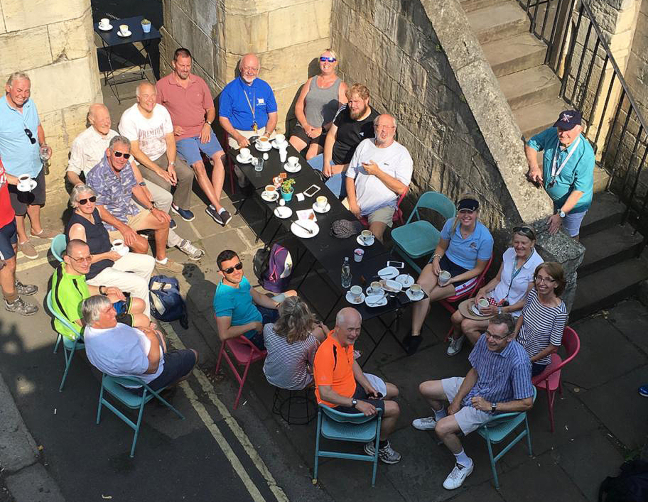
Like any squad, someone will need to do a certain amount of organising, of course, but as recreational groups are inclusive in terms of age, it’s usually quite easy to find someone with well-honed administrative skills, even if they’re still developing their on-water ability.
What’s in it for clubs?
First of all, a rec group will help you expand your membership. Considerably. There are 40-50 members in York City’s group and over 20 in Bedford’s.
Darren Woodford, York City’s group coordinator explains, “We give the club another footprint in the community by picking up lots of people who wouldn’t row otherwise.”
Recreational groups find it easier to accommodate visiting rowers too; as a university city, the York club is often contacted by academics attending conferences whom they’re happy to take rowing, forging useful links. Two of their rowers were then able to race at the Head of the Charles in a boat arranged by one such new friend.
“The recreational rowing group was an excellent way of making new friends when I came to Bedford not knowing anyone,” says Vincent Hayes.
Then, if you run a head or regatta, they’re an ideal volunteer force as they’re usually not racing themselves. “We couldn’t run any of our events without them!” says Sara Reay, a successful masters single sculler and member of the Bedford RC committee, who joined the rec group when she retired so she could row in crews during the week.
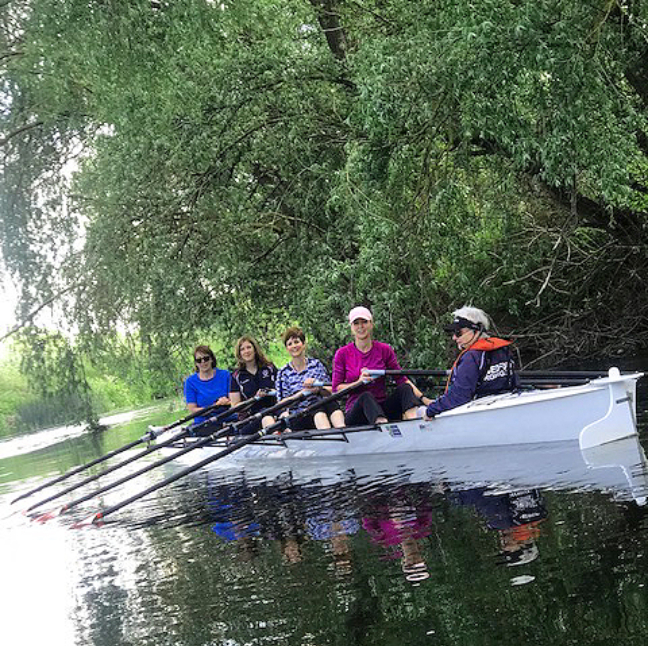
But perhaps most importantly, recreational rowing is particularly good for promoting wellbeing. Bedford coordinator, Michele works as an associate trainer for the mental health charity MIND, and explains that it fits perfectly with the widely recognised ‘Five ways to wellbeing’ framework of connection, learning for fun, being mindful of the present, physical activity and giving.
Adding sprinkles to the ice cream of rec rowing
As if rowing in friendly crews when you want to and giving the Dutch a run for their money on the coffee and cake front aren’t fun enough on their own, with no competition calendar to work to, there’s no limit on what recreational groups can do for a bit of variety.
Bedford have done some exchanges with the recreational group at nearby Milton Keynes RC, for example, making new friends by rowing with them, and challenging them to a bake off afterwards. York City RC’s recreational group took this idea one step further by planning an exchange with the fixed-seat sea rowing club in Whitby.
“One of the most popular trips for recreational rowers is the Vogalonga in Venice”
The York City group also run a skills day every summer, where members do rigger dips, stand up in singles, and demonstrate backing down and spinning. A couple of the club’s juniors, who are highly competent at such things, act as judges, and as the club’s situated in the centre of town by a bridge, the event attracts plenty of spectators, providing good publicity.
Other popular ‘sprinkles’ include rowing a bit further than usual (including through a lock, if your river has them) for a picnic, or to a café or pub; visiting a rowing tank such as the one in Cambridge; a canoe or punt trip making use of transferable watermanship skills; an on-water treasure hunt; and festive fancy-dress rowing.
“York City’s Leisure & Progression Group is wonderfully warm and inclusive – friends both on and off the water – helping one another achieve all that they want to within the sport of rowing,” says Hillary Howe.
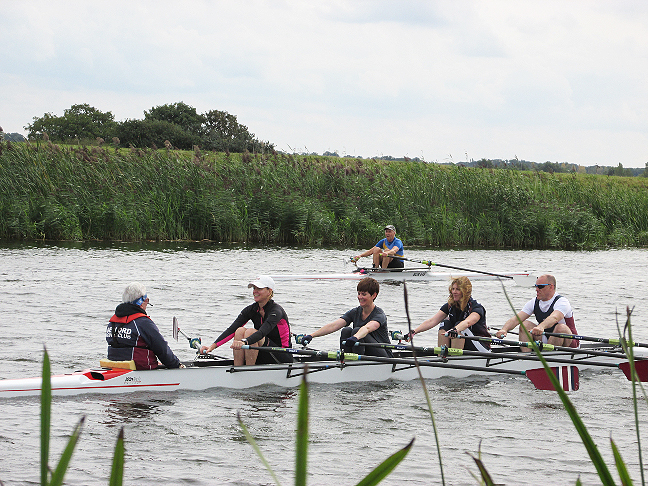
Once we can all travel further again, there’s no greater joy than going to interesting places and rowing in them. One of the most popular trips for recreational rowers is the Vogalonga in Venice, the Sulkavan Suursoudut in rural Finland (overnight camping option available).
Bedford’s group plan to join their senior squad’s next training camp in Banyoles, but with sightseeing to Barcelona, swimming in the lake and walks in the mountains included in their programme. A few of them have taken part in the 21.5km Great Ouse Marathon – a great achievement!
Take it further
If you’re keen to find out more about recreational rowing then you can do so here. The British Rowing Recreational Rowing Committee and its regional reps will be happy to answer any questions.
Don’t forget that recreational rowers who have British Rowing’s considerably cheaper ROW membership can always upgrade this if they do decide to enter an affiliated event.


